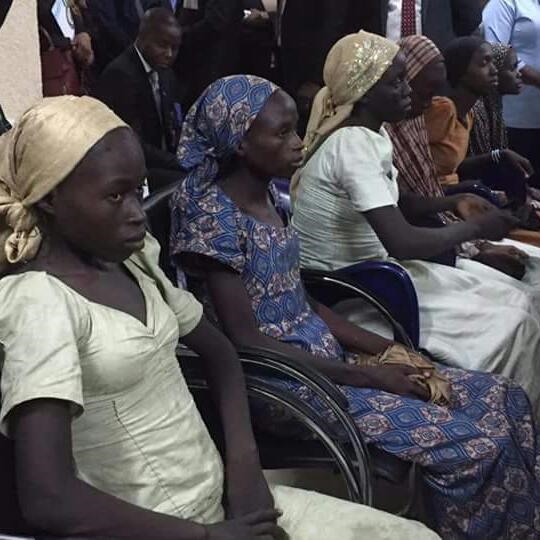
Fears are growing that the girls still missing after Boko Haram attacked a boarding school in Nigeria’s north-eastern state of Yobe on Monday night (19 February) have been taken by the militant group.
The attack comes almost four years after Boko Haram kidnapped 276 girls from a boarding school in Chibok, in neighbouring Borno State, a case that gained international attention. Many of those girls have since escaped or were rescued by the military, but 112 remain missing and are thought to be being held by Boko Haram.
Reports vary as to what happened in this latest incident on Monday night and how many girls are now missing. Initially it had seemed that all students and teachers of the state-run Girls Science and Technical Secondary School in Dapchi town had been able to flee the attackers after hearing gunshots. But the BBC has since reported that parents saw girls taken away in trucks.
News agency AFP yesterday quoted Yobe governor Ibrahim Gaidam as saying “over 50 girls remained unaccounted for”, while according to the state’s police commissioner, 111 students were still missing. Previously, Reuters reported that a roll-call at the school on Tuesday “showed that 91 students were absent”. The BBC, quoting Reuters, said two girls had been found dead.
‘Panic’
Aisha Yusuf Abdullahi, 16, was amongst the girls who managed to escape. She told AFP: “We were in the mosque and about to start evening prayers when we heard gunshots. We rushed out and ran towards the gate. It was closed… Out of panic, some climbed the fence to waiting vehicles outside and just jumped in, not knowing whose vehicles they were… We have not heard from those who entered the vehicles outside the school. We have the feeling they were taken by the gunmen.”
According to World Watch Monitor’s local source, the attackers arrived in military vehicles and told the girls they were the army coming to protect them. Again, there are echoes of the Chibok attack, when one survivor told World Watch Monitor that when men on several vehicles arrived at their school, “we thought they were military”.
One man whose niece went missing during the attack, Abubakar Shehu, said a search in the surrounding area and villages where the girls were believed to have fled had not resulted in finding any of them.
“We have the fear that we are dealing with another Chibok scenario,” he told AFP.
Prison sentences
Boko Haram’s eight-year insurgency has claimed more than 20,000 lives and forced more than 2 million others to flee.
On Monday, the Ministry of Justice announced that 205 people were sentenced to between three and 60 years in prison for their involvement with the militant Islamist group. According to Reuters another 526 people were “released for rehabilitation” and “73 cases had been adjourned”.
Meanwhile on Tuesday it was reported that the leader of Boko Haram was allowed to walk away as the army took over the militants’ main camp in the Sambisa Forest in north-east Nigeria earlier this month.
Over the years countless women and girls have been captured by Boko Haram in northern Nigeria.